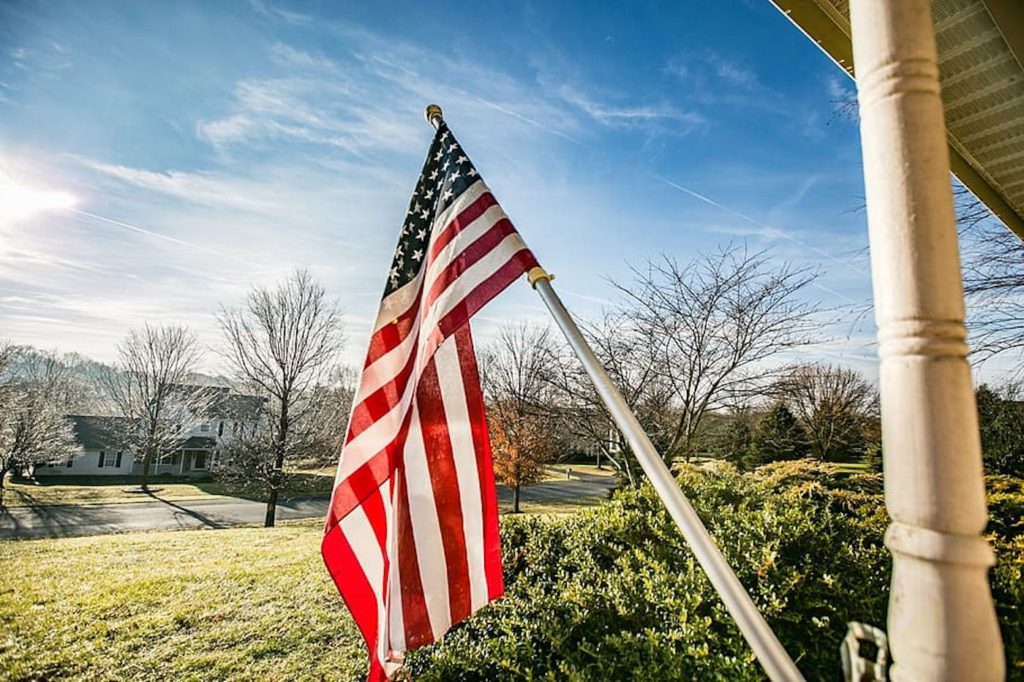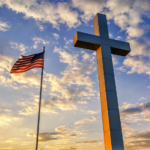What’s wrong with good old-fashioned American individualism? This question has been simmering for a long time—at least since the end of the Cold War, when conservatives had to decide whether they were allowed to fully celebrate a victory over the dead body of socialism, or whether we needed to beat our own breasts with mea culpas for our own virulent individualism.
We learned from such converts from Marxism as Alasdair MacIntyre and Elizabeth Fox and Eugene Genovese that, while Marxism was not the solution, the Marxist critique of liberal individualism was so radically true that I guess we could say we are all communitarians now. Alexander Solzhenitsyn’s writings about the Gulag were not as widely circulated as his Harvard Address, which served up a pretty even-handed critique of Russian communism and the soulless individualism of the West.
Before the end of the Cold War, the term “individualism” was not thrown around so frequently as a term of abuse, even by Christian conservatives, because of the more evident, ghastly effects of socialism—both the National Socialism of Germany and the international socialism of the USSR and its allies. Yes, there was some effort to distinguish conservatives from Ayn Randian individualists, or to tame “individualism” to Christian purposes by the use of the term “personalism.” But the Marxist critique of bourgeois individualism stuck like clay: it was hard to divest the notion of the individual of the filthy connotations of materialism, consumerism, and selfishness. Still, conservatives did not publicly attack the belief in the value of the individual human person, invested with God-given dignity and rights.
In the twenty-first century, that has changed.
Start your day with Public Discourse
Sign up and get our daily essays sent straight to your inbox.The Assault on American Liberalism
Patrick Deneen’s relentless assault on American liberalism over the last decade has led many millennials to be openly hostile to individualism. I myself found his opening volley in First Things quite seductive and have been re-reading it and mentally responding to it for years. It drew responses at the time from Peter Augustine Lawler, Daniel Mahoney, and Nathan Schlueter in a back-and-forth in First Things and Public Discourse.
Deneen’s diagnosis of the contemporary ills was spot on, and the simplicity of his historical narrative of how we arrived at our present all-out assault on family, church, and civil associations was appealing. The idea of a symbiotic development between individualism and socialism was appealing, especially in light of the horrors of Barack Obama’s “Life of Julia” campaign ad, which depicted a young woman whose only stable relation in life is the federal government, which cares for her from cradle to grave. The idea that reading Bacon and Locke provides a complete understanding of American history—especially its fundamentally flawed foundations in a deracinated liberalism—gave many young people the sense that they now knew what was terribly wrong with America.
Social conservatives used to have a much more nuanced understanding of the development of modern liberalism out of the medieval Christian world. The idea that a single immortal soul is worth more than the entire material universe in all its splendor was the starting point for the pro-life movement that emerged slowly from the fringes of American society and culture into mainstream politics in the 1980s. Even if the material universe was infinite, and even if the immortal soul’s highest faculty—reason—was impaired by some flaw in the bodily component of the human person, each individual person is of infinite value and inviolable dignity. This is the individualism that social conservatives once embraced.
The idea that a single immortal soul is worth more than the entire material universe was the starting point for the pro-life movement that emerged slowly from the fringes of American society and culture into mainstream politics in the 1980s.
As we observe the dissolution of the individual’s integrity in so many ways in the twenty-first century, perhaps we need to reconnect with our earlier vision of conservatism. There was a time when the shining, heroic individual—true to his word as a gentleman—was widely admired as noble. As St. Thomas More said in that 1966 cinematic celebration of the individual’s determination to maintain his own sense of truth in the flux of political pragmatism:
What is an oath then, but words we say to God? Listen Meg, when a man takes an oath, he’s holding his own self in his own hands like water. And if he opens his fingers then, he needn’t hope to find himself again. Some men aren’t capable of this, but I’d be loath to think your father one of them.
Why is this ideal of integrity and self-possession now an object of scorn for Christian conservatives? Deneen might respond that of course he admires St. Thomas More’s integrity; but More was standing alone against even the bishops of the Church and against his own family. Bonds of affection and sense of duty to authority did not prove more sacrosanct to More than his individual responsibility before God. Deneen attacks “autonomy”—the individual being a radical law unto himself, a self-creating atomic individual. But he does not seem to fully acknowledge that the Christian notion of each person as an Imago Dei was an explosive idea with regard to the ancient world—the divine spark of rationality and free will does indeed set the individual on his own two feet in a radically new way.
Or take another great post-War, Cold War–era American classic film: What ever happened to the celebration of a lone gunfighter like Gary Cooper in the 1952 High Noon? Gary Cooper is not a communitarian hero, a figure enmeshed in strong social bonds, speaking only for the social community as a corporate body. Cooper’s character, Will Kane, sacrifices even his marriage and his respect for the authority of the cloth to the demands of his conscience. Is now the time to deep-six the American tradition of celebrating the figure of the ordinary Joe who had enough guts to stand up for what was true, even if his family, his church, and his town failed to support him?
In Remembrance
While I have struggled with the thought of MacIntyre and the Genoveses for decades, and more recently with Deneen’s many arguments, I recently found my convictions about individualism crystallizing as I reflected on the differences between the military cemeteries of the English at Monte Cassino and the Americans at Anzio before visiting the American cemetery at Normandy.
Like the Normandy cemetery—which every American president since Reagan has visited and celebrated on the anniversary of June 6, 1944—the cemetery at Anzio is made up of thousands of individual markers, with individual names. The markers are mostly crosses, but, acknowledging religious difference, there are Stars of David as well. It is far more moving to step from grave to grave, acknowledging each individual life sacrificed, than it would be to have a mass grave and an eternal flame honoring an unknown soldier.
There simply is no Christian cultural tradition that does not place immense value on the free individual.
Cinematic and dramatic art teaches us this lesson, too. Saving Private Ryan is about the value of one man’s life; the movie stages repeated conversations about the difference between dealing with people as names or as numbers. We engage with Band of Brothers because it follows the personal struggles of individual soldiers through the largest amphibious landing in human history. “Let us, ciphers to this great account, on your imaginary forces work,” says Shakespeare’s chorus in Henry V. Ciphers—mere numbers, mere statistics—do not tell a human tale.
As somber and striking as those rows of crosses are, how much more moving is the English cemetery at Monte Cassino? There, each individual gravestone is personalized, with a story of the young men who died—whether they were eighteen years old and just enlisted, or twenty-six and leaving wife and children behind. The graves contain quotations from poems, hymns, and prayers, each appropriate to this soul, this human life, this particular sacrifice. One could wander such a cemetery for hours.
The Individual in the Western Tradition
I am fortunate to be able to make these pilgrimages to World War II cemeteries because I teach Western Civilization on the University of Dallas’s Rome Campus each summer. In teaching that course, I read Russell Kirk’s The Roots of the American Order and am repeatedly struck by the deep Christian roots of our much-derided American individualism.
Kirk chooses Pope St. Gregory the Great as “the Bridge” between the classical and Christian episodes in Western history. The book Kirk lights on as the transitional text is Gregory’s Pastoral Care, which carries the mores of the older civilization into the modern era, especially the Delphic maxims “Know Thyself” and “Nothing in excess” and the Platonic and Aristotelian concern for order in the city and order in the soul.
Kirk’s choice of Gregory the Great’s Pastoral Care highlights for me that Deneen is creating a figment of imagination when he talks about “pre-liberal Christianity.” There simply is no Christian cultural tradition that does not place immense value on the free individual.
Reading the slim little volume, one is struck by St. Gregory’s use of the word individual: “As difficult as it is to serve individuals by dealing with them according to their individual needs, it is even more difficult to be of aid to many hearers who labor under different passions with a single exhortation.”
It matters little if my English translation has used the word individual here when it may not appear in the Latin original. Attentiveness to the needs of the distinctive individual is inscribed all over the text, thoroughly imbuing its spirit. The entire section devoted to preaching to the various raw temperaments, formed characters, and those inhabiting various offices bespeaks attentiveness to the circumstances and inner capacities of those in one’s care. St. Gregory writes:
One manner of teaching does not suit all hearers, since there are different kinds of people and different characters, and what profits some may hurt others. Foods that nourish one kind of animal may be fatal for another. The gentle hissing sound that quiets a horse will agitate puppies. A medicine that cures one disease can aggravate a different disease. And the bread that invigorates the life of the strong in unsuitable for little children.
Ultimately, the moral decision to make a stand and fight comes down to the lone individual faced with his own conscience and judgment of good and evil.
The joyful and the sad, those in authority and those under authority, the bold and the fainthearted, the impatient who need to bridle their spirit and the placid who need a spur (citing St. Paul to Timothy and Titus), those eager to engage in the battle of life and the inert spectators sitting in the arena benches are all “being fashioned in the image and likeness of our Maker.”
St. Paul, who indeed gave us the wonderful image of social organicism or corporatism—the Mystical Body of Christ made up of many members—also proclaims like a trumpet that the Word became Flesh not to save Eternal Rome, but to save this mortal body that will put on immortality. This insistence on individual immortality, an idea hammered home by the almost preposterous teaching of the resurrection of the body, makes Christians dyed-in-the-wool individualists.
St. Gregory is not much given to using the name of Jesus, any more than George Washington or Abraham Lincoln is. I rather like his way of referring to “the Truth Himself,” “when He Himself appeared in the flesh of our mortality.” Sometimes we are called to stay true to the Truth as it is proclaimed by the community through the ages—the voice of Tradition—standing against the wayward, heretic individual. But at other times, we must stand alone for the Truth when the community has lost its mind.
Deneen needs to be more careful, in taking aim at radical autonomy, that he doesn’t cast aspersions on the entire tradition in which Christianity has played a crucial role in elevating the dignity of the individual. It is the individual substance of a rational nature that is immortal: not the family, not the community, not the state. American culture, as Russell Kirk argues in Roots of the American Order, has been a vibrant part of that larger, longer liberal tradition. Emphasizing America’s modernity, American culture’s radical and revolutionary character, can be overdone—there are broad swaths of healthy continuity with the Christian tradition in American culture. Remembering these elements, resurrecting them, and educating the young in patriotism to that larger tradition is more countercultural right now than contributing to the sludge of anti-Americanism in the academy.
Gary Cooper in High Noon, against the churchgoing community, against the outlaws, and against the young man who, like Richard Rich in The Man for All Seasons, lacks mature self-possession, is not a bad American hero. Cooper’s character tries various forms of appeal and persuasion with the variety of individual characters in the town, just as Gregory the Great prescribes in his Pastoral Care. But ultimately, the moral decision to make a stand and fight comes down to the lone individual faced with his own conscience and judgment of good and evil. Original sin is new in every generation, in each person; freedom is new in every generation, in each individual. Deneen has invented a caricature that he calls “pre-liberal Christianity.” There never was a Christianity that didn’t proclaim the radical freedom of the individual. No matter how much we owe to constitutive communities and corporate socially organic bodies—the family, the church, the nation—“freedom presupposes that in fundamental decisions, every person and every generation is a new beginning” (Benedict XVI, Spe Salvi, 2007). Rugged Individualism may still have its place in America’s providential history.














